Dr. Gil Dekel.
Introduction and games/activities:
Jewish people celebrate four new years, one of which is Tu B’Shevat (Tu BiShvat). The festival is a celebration of the New Year for trees, as they start a new fruit-bearing cycle, after their long winter slumber. Tu B’Shevat marks the 4 months since the first rains in Israel, which is the time it takes the rain water to seep into the earth, nourish the trees, and for the trees to bear fruits.
Tu B’Shevat falls on the 15th day of the Hebrew month known as Shevat (on January-February). The word ‘TU’ refers to the Hebrew Letters Tet (ט) and Vav (ו) which together have the numerical value of 15. In Hebrew the letters are pronounced as TU (טו) which is probably why in English we spell it as TU instead of TV.
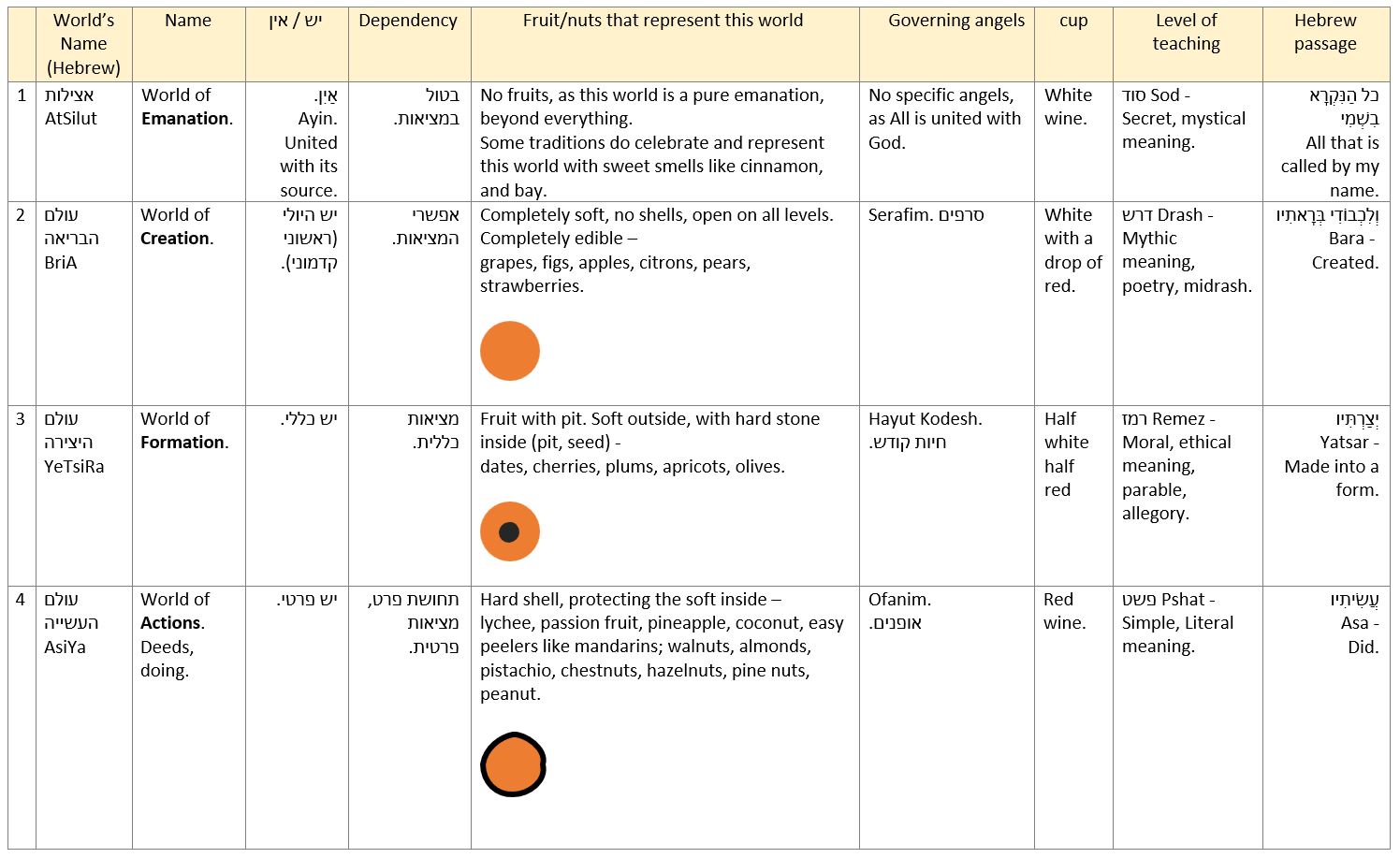
The Four Worlds and their symbolism for Tu BiShvat. Ⓒ Gil Dekel.
The Kabbalistic idea of Four Worlds is taken from a passage in the Torah, in book Isaiah, chapter 43, passage 7:
Anyone who is called by my name and whom I have created in my honour, I have made them a form and also did them.
“כֹּל הַנִּקְרָא בִשְׁמִי וְלִכְבוֹדִי בְּרָאתִיו :יְצַרְתִּיו אַף עֲשִׂיתִיו” (ישעיה, מג, ז)
- Anyone who is called by my name – Hanikra BeShmi – כֹּל הַנִּקְרָא בִשְׁמִי
- and whom I have created in my honour – Bara LichVodi – וְלִכְבוֹדִי בְּרָאתִיו
- I have made them a form (a cast container, mould) – Yatsar – יְצַרְתִּיו
- I have also did them – Asa – עֲשִׂיתִיו
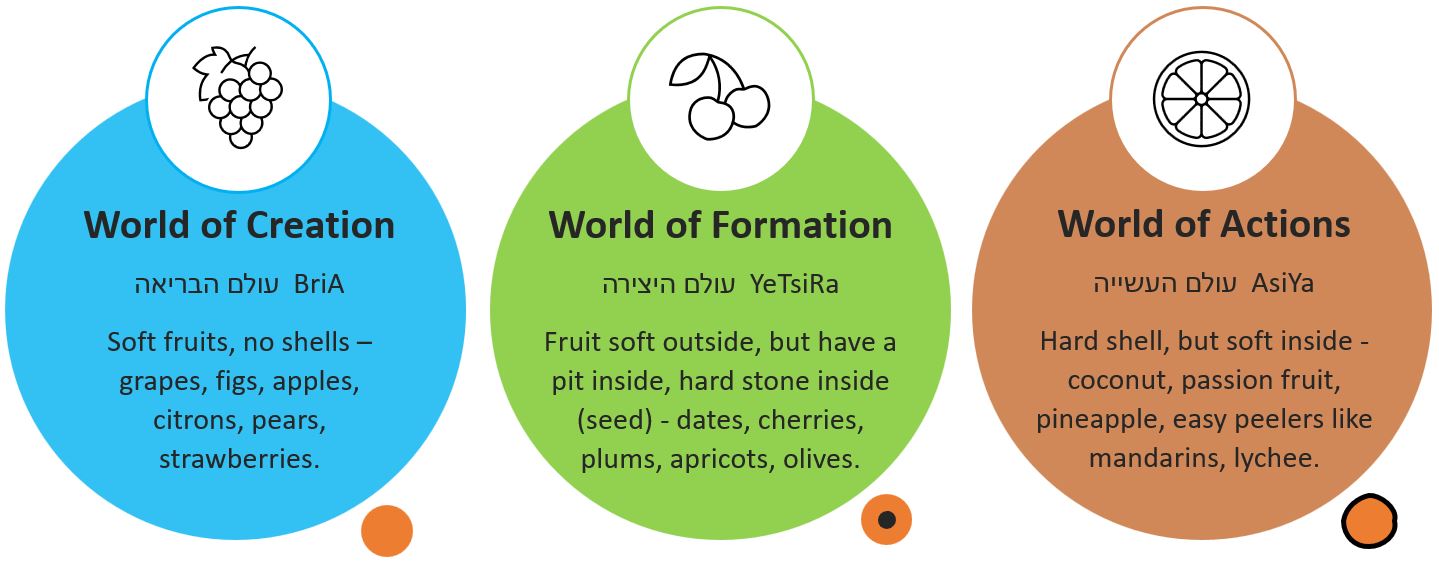
The Three worlds of Tu Bishvat (there is also a forth world…)
Through this post-biblical festival people reflect on their responsibility towards nature, and on being stewards of life, so to speak. Fruits and nuts are eaten, especially those that have been mentioned in the Torah and are related to trees. The seven species of foods that are intimately connected with the land of Israel, are: figs, pomegranates, barley, wheat, dates, olives, and grapes. Some people prefer serving fifteen different species of fruits in their households to allude to the Tu B’Shevat’s date (15th of the month of Shevat).
Like other festivals, there are a few symbolisms to Tu B’Shevat:
- Trees are planted the same way people are ‘planted’ by God on earth. The trees are planted as seeds in the ground, while people have been ‘planted’ with a divine type of seed which is the soul.
- Trees have to be watered frequently in order to grow and flourish. Likewise, people have to nourish themselves with positive thinking.
- A young tree can grow straight upwards once it has been tied to two supports on its each side. Likewise, a young individual needs his parents by his side to guide him as he goes through life.
- A tree’s strength ultimately relies on how deep its roots reach in the ground. Just like trees, people need to be deeply rooted in their love.
- A tree’s beauty is measured on the fruits it bears; and people can be measured by the good deeds they do. This is why during Tu B’Shevat, people ask themselves such questions as ‘If an olive tree produces olives, then what can I bring to the world which will bring joy to others?’
With the increasing emphasis on environmental issues, Tu B’Shevat plays an important role in the wellbeing of society, and mother earth at large.
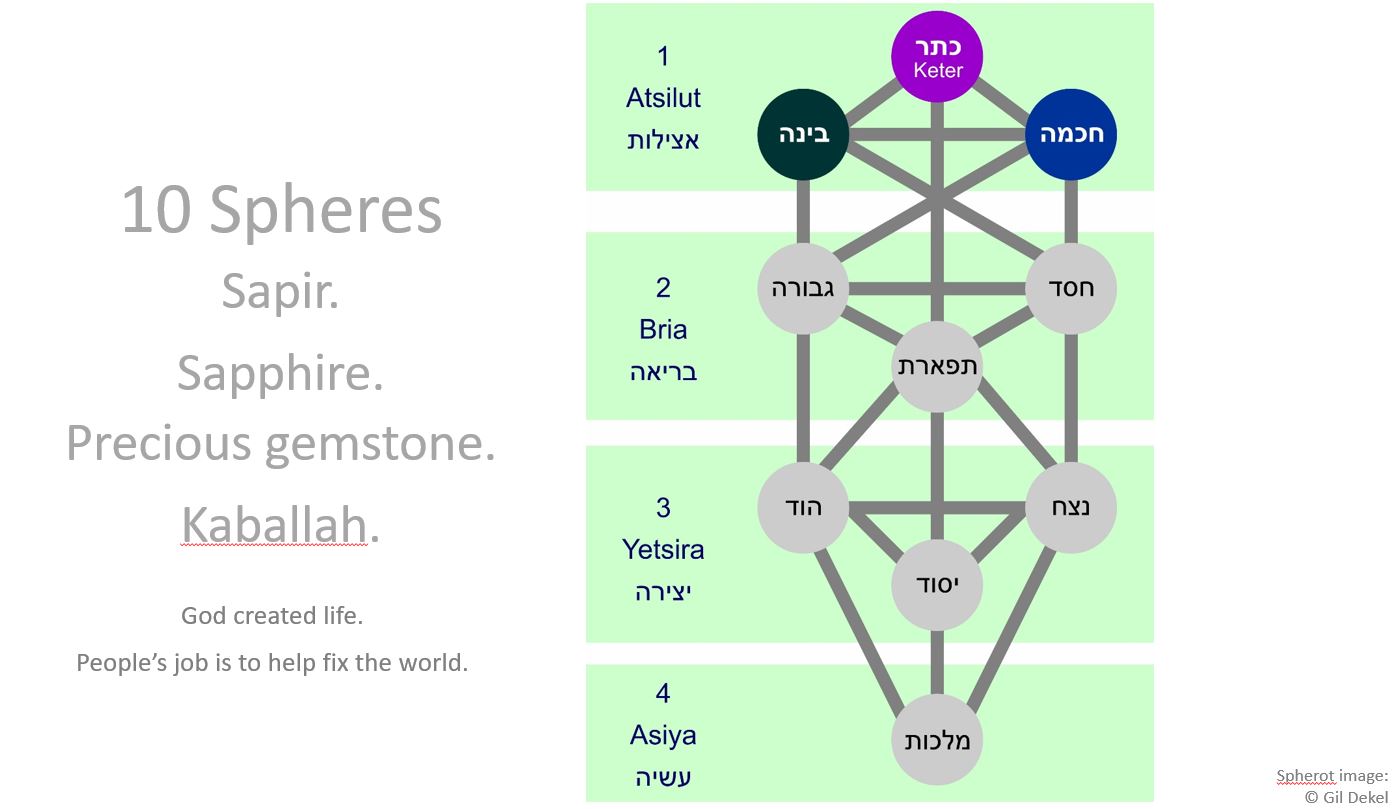
10 Spheres Sapir. Sapphire. Precious gemstone. Kaballah: God created life. People’s job is to help fix the world. Tu Bishvat
Games/Activities/Crafts:
Window Transparency art: cut a frame from card. Attach transparent sticky-tape at the back, and stick leaves/gem.

Find the Numeric Value of your Hebrew name:
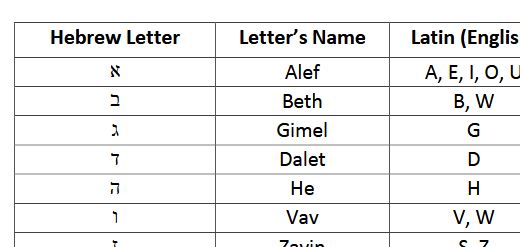 ‘TU’ is made of Hebrew letters that have the value of 15. Each child needs to find the numerical value of their name, using the Hebrew letters and value table, download here.
‘TU’ is made of Hebrew letters that have the value of 15. Each child needs to find the numerical value of their name, using the Hebrew letters and value table, download here.
Tree pencil:
You will need: – Pencils, – Brown Florist or washi tape, – Green tissue paper.
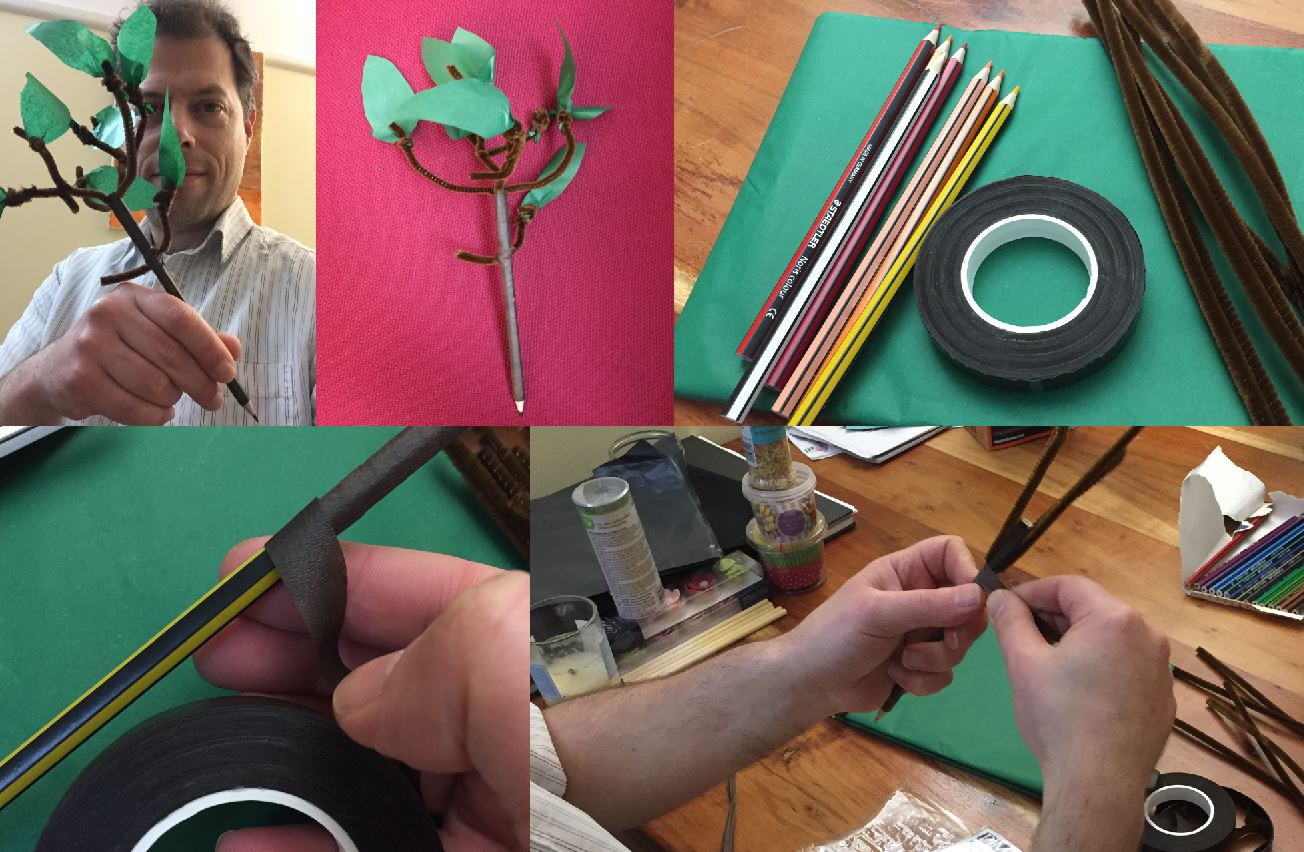
House and Garden, made from milk carton:
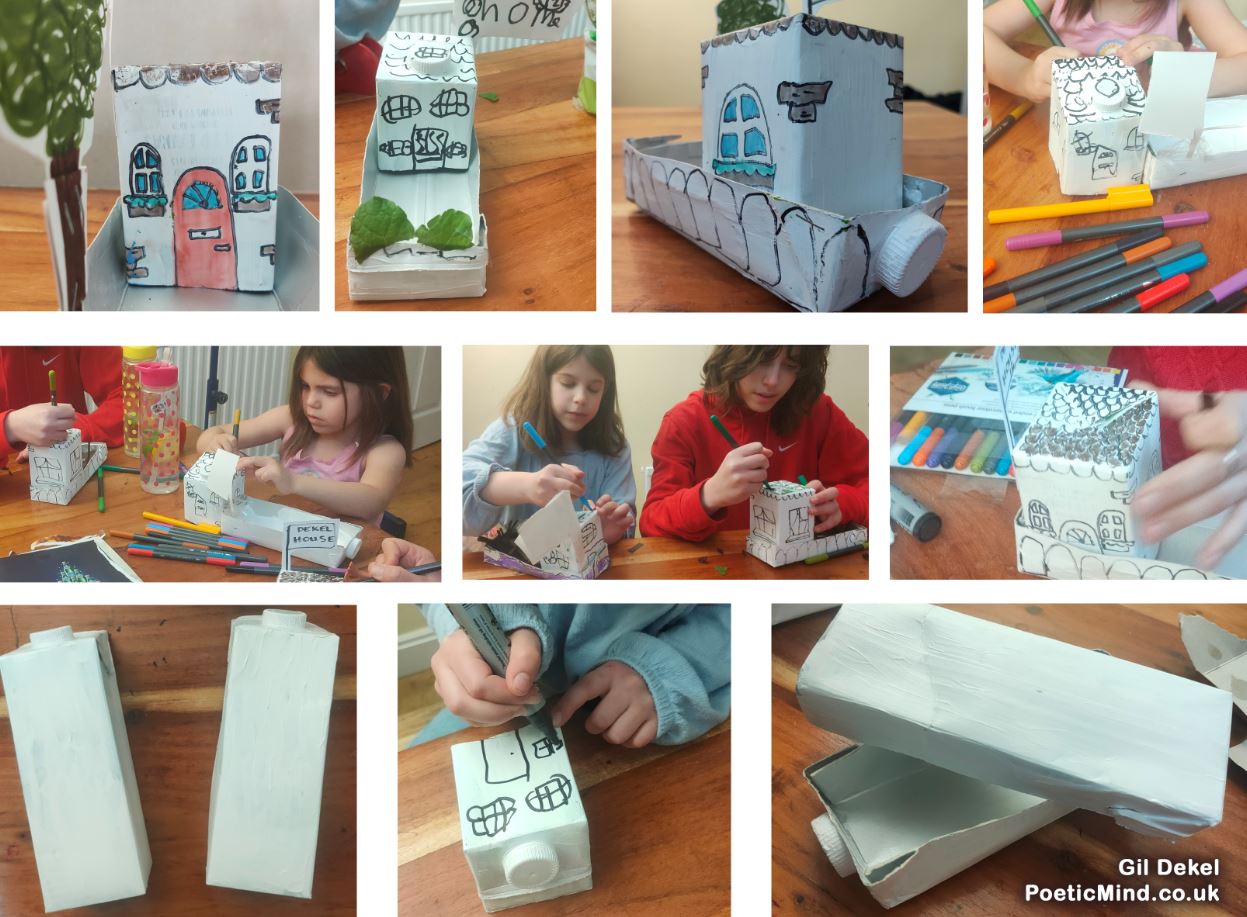
Strawberry Tree Cupcakes:
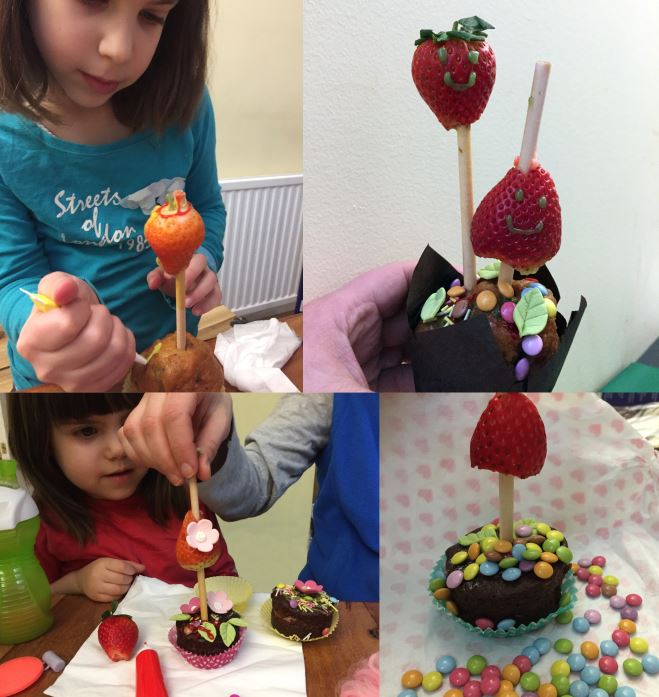
Fruit Tree Plate, and Tree Collage:
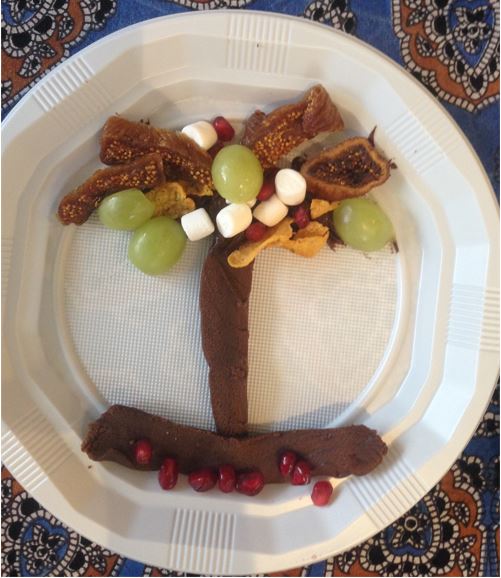
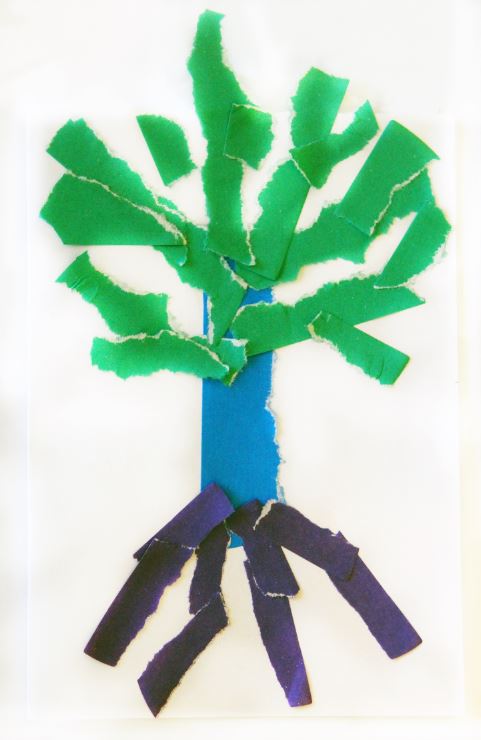
The Dance of Trees:
Watch trees or play a short video of trees. The children need to act being trees, and make the ‘sounds’ that trees make (rustle of leaves in the wind), and the ‘movement’ that a tree would make growing from a seed. The children can only act; they are not supposed to speak while performing.
Roots-Trunk-Branches-Leaves.
Based on the song/dance of Head-Shoulders-Knees-and Toes; just adapted to Tu BiShvat, and starting from the roots…
Tu B’Shevat Word Search game, in the shape of a tree (click image to download PDF):
Tu B’Shevat is also spelled Tu BiShvat (Hebrew: טו בשבט), and known as ’Rosh HaShanah La’Ilanot’ (Hebrew: ראש השנה לאילנות), New Year of the Trees.
Updated 3 Feb 2024. First published 2 Jan 2015.
© Gil Dekel

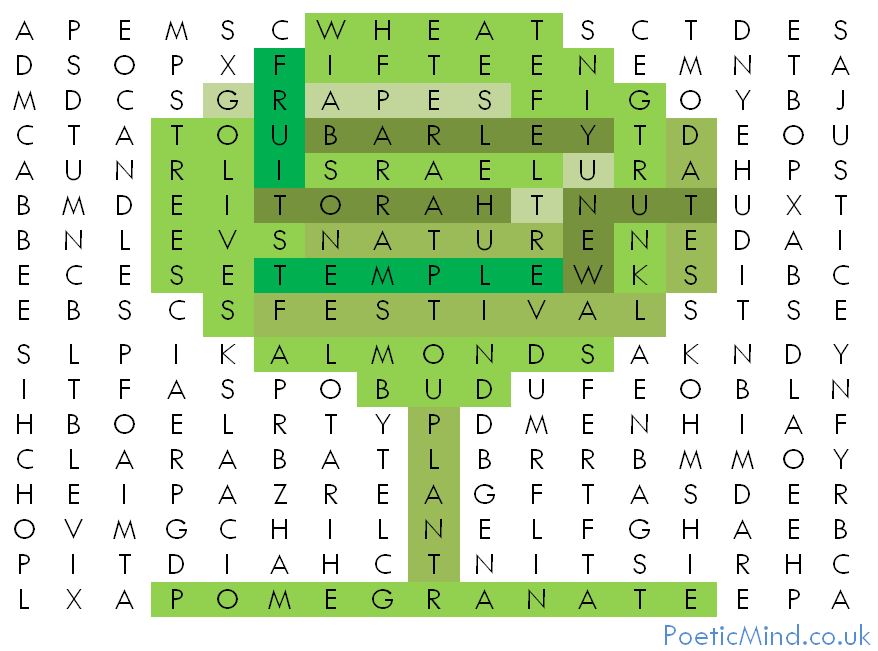

 - Reading with Natalie, book here...
- Reading with Natalie, book here...